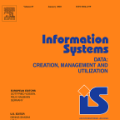There is a need to provide quality education without discrimination or prejudice to all students. However, there are challenges in implementing quality education in large classes, especially during remote learning. Literature indicates that providing lecturer feedback can become a tedious task, especially in large classes. Literature states that involving students in the peer review process can improve the quality of their submissions. This research used a case study and thematic analysis. Qualitative data were collected from 179 third-year Information Systems students who used the Opensource Sakai Platform. Students reviewed another student's report, without knowing their identity. The research used self-determination theory as a theoretical basis. The achievement of perceived autonomy is supported as an anonymous peer review helped students to empower themselves. Perceived competence was also achieved as the anonymous peer review improved the quality of work submitted and the development of workplace skills. Perceived relatedness is supported as students indicated that the anonymous peer review allowed them to learn from their peers. It also improved their understanding and the ability to see errors in their work. Despite the negative aspects identified using the Sakai platform, it may provide a viable alternative for providing feedback remotely, especially during the Covid-19 pandemic.
翻译:需要向所有学生提供没有歧视或偏见的高质量教育。然而,在大型班级实施高质量教育方面,特别是在远程学习期间,存在挑战。文学表明,提供讲师反馈可能成为一种乏味的任务,特别是在大型班级。文学指出,让学生参与同行审议进程可以提高提交材料的质量。该研究使用了案例研究和专题分析。从使用开放源码Sakai平台的179名三年级信息系统学生中收集了定性数据。学生在不知晓自己身份的情况下审查了另一名学生的报告。研究将自决理论作为理论依据。研究将自决理论作为理论依据。认为自治的实现作为匿名同行审议支持,有助于学生增强自我能力。随着匿名同行审议提高提交的工作质量和工作场所技能的发展,也实现了认知能力。认知关联性得到了支持,因为学生表示匿名同行审评允许他们向同行学习。还提高了他们的理解和看到其工作错误的能力。尽管使用Sakai平台发现存在负面方面,但可以提供远程反馈的可行替代方法,特别是在Covid-19大流行病期间。




